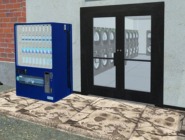Laundry Store Simulator
Advertisement
Advertisement

Laundry Store Simulator places players in charge of a small laundromat at the start of their business journey. With only a few machines and limited foot traffic, the goal is to keep the operation running while preparing for growth. Players must handle all the basic responsibilities themselves, from operating machines to sweeping the floor. The early game is about learning the flow of customer activity, maintaining equipment, and making smart financial decisions that allow steady development.
Improving Systems Through Expansion
As players earn more money, they unlock ways to make the laundromat more efficient and more appealing. New equipment increases capacity, and layout changes improve movement and task speed. The business starts to shift from hands-on work to larger decisions about organization and staff. Balancing investment with performance becomes key. Every upgrade comes with trade-offs, and players must prioritize what matters most in their current stage of growth.
Core Components in Laundry Store Simulator
- Manage washing and drying stations during peak and off-peak hours
- Upgrade machines to increase capacity and reduce breakdowns
- Hire employees and assign them specific roles
- Design the store layout to optimize task efficiency
- Handle customer needs and machine maintenance at the same time
These features support a management loop that evolves from simple task handling to full business coordination.
Solving Small Problems Before They Grow
As the store becomes more active, the pace increases. A broken machine can cause a line to form. A frustrated customer can leave a mess behind. Each incident requires a quick response, or risk reducing the store’s reputation. Players must track multiple systems at once, including repairs, staff performance, and customer flow.
A Business That Grows With You
Laundry Store Simulator is structured around incremental progress. Each new feature or tool doesn’t just make the game easier — it changes how the player approaches their job. New options allow for more automation, but also require more supervision. The player’s role shifts from operator to manager. The game doesn’t force fast progress but encourages smart pacing, rewarding players who balance growth with stability and keep every part of the store working together.
Related games
Comments















